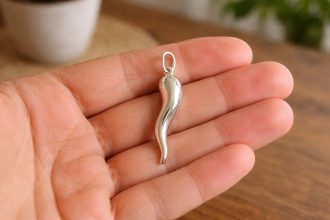When someone steals from you, it is not just about losing a possession. Spiritually, theft touches something deeper: your sense of safety, your trust in others, and the way you relate to both material and non-material things. Beyond the frustration and anger, it can open up questions about boundaries, attachment, and the lessons we take from painful experiences.
Theft From a Spiritual Perspective
When someone steals from you, it hits harder than the missing item. It shakes your sense of safety and makes you question where your boundaries actually stand. It forces the uncomfortable thoughts: Who am I letting too close? Have I been ignoring red flags? Am I giving parts of myself to people who don’t value me?
Theft can rip the curtain back on relationships and spaces you thought were safe. It shows you, sometimes brutally, who respects you and who doesn’t. And it also tests your grip on possessions. How much of your peace depends on what you own? How much of your identity is wrapped up in things that can be taken?
Boundaries and Protection
On a spiritual level, when someone steals from you, it shows a lack of respect for your boundaries. Theft doesn’t just take away an object; it reflects the way others might also be taking from you in less obvious ways, draining your time, using your energy, or leaning on your talents without ever giving back.
Spiritually, this is a call to tighten those boundaries and protect what actually matters. That protection is not only about locks and alarms, but also about drawing lines in your relationships, noticing who depletes you, and refusing to hand over your power. Sometimes it is as simple as saying no, stepping back, or cutting ties. Guarding your inner world is just as important as protecting your belongings.
Karma and Lessons in Trust
Theft can also bring up the question of karma. Cause and effect is a constant cycle: what you put into the world eventually makes its way back. If you have ever taken from others, whether it was something physical, emotional, or even their time and energy, being stolen from can act as a mirror, forcing you to face that imbalance and make it right.
But karma is not the only lens. Theft also tests who you are in the moment. Do you let it harden you with anger, or do you use it as fuel to grow stronger and act with integrity? Meeting the situation with awareness and even compassion does not excuse the act, but it does prevent you from carrying the weight of bitterness. That choice is what closes the cycle and shapes your character.
Theft as a Sign of Imbalance
When someone steals, it often says more about them than it does about you. Spiritually, theft shows the thief is operating from a place of lack and disconnection. Taking what is not theirs exposes inner imbalance: insecurity, scarcity, and an inability to meet their needs in honest ways.
This does not excuse what happened, but it shifts how you hold the experience. Their choice reflects their state, not your values. You do not have to carry their actions as if they define you. Instead of letting bitterness take root, you can release it and choose strength. That shift is not for them, but for your own peace.
A Catalyst for Awakening
The emotional sting of being stolen from is undeniable. It can stir anger, grief, and a deep sense of violation. But if you work through those feelings instead of burying them, the experience can reshape you. It exposes where you hold on too tightly, where compassion needs to grow, and where resilience is waiting to be built.
Spiritually, theft is a stark reminder of impermanence. Possessions come and go. You can value them, but they cannot be the foundation of who you are. When they disappear, what remains is your spirit, your integrity, and your ability to keep moving forward. Those are untouchable.
Being stolen from forces you to face boundaries, attachment, and trust head-on. It hurts, but it can also carve out space for self-awareness, inner strength, and a deeper sense of what is truly yours, the power and clarity within you that no one can take.












